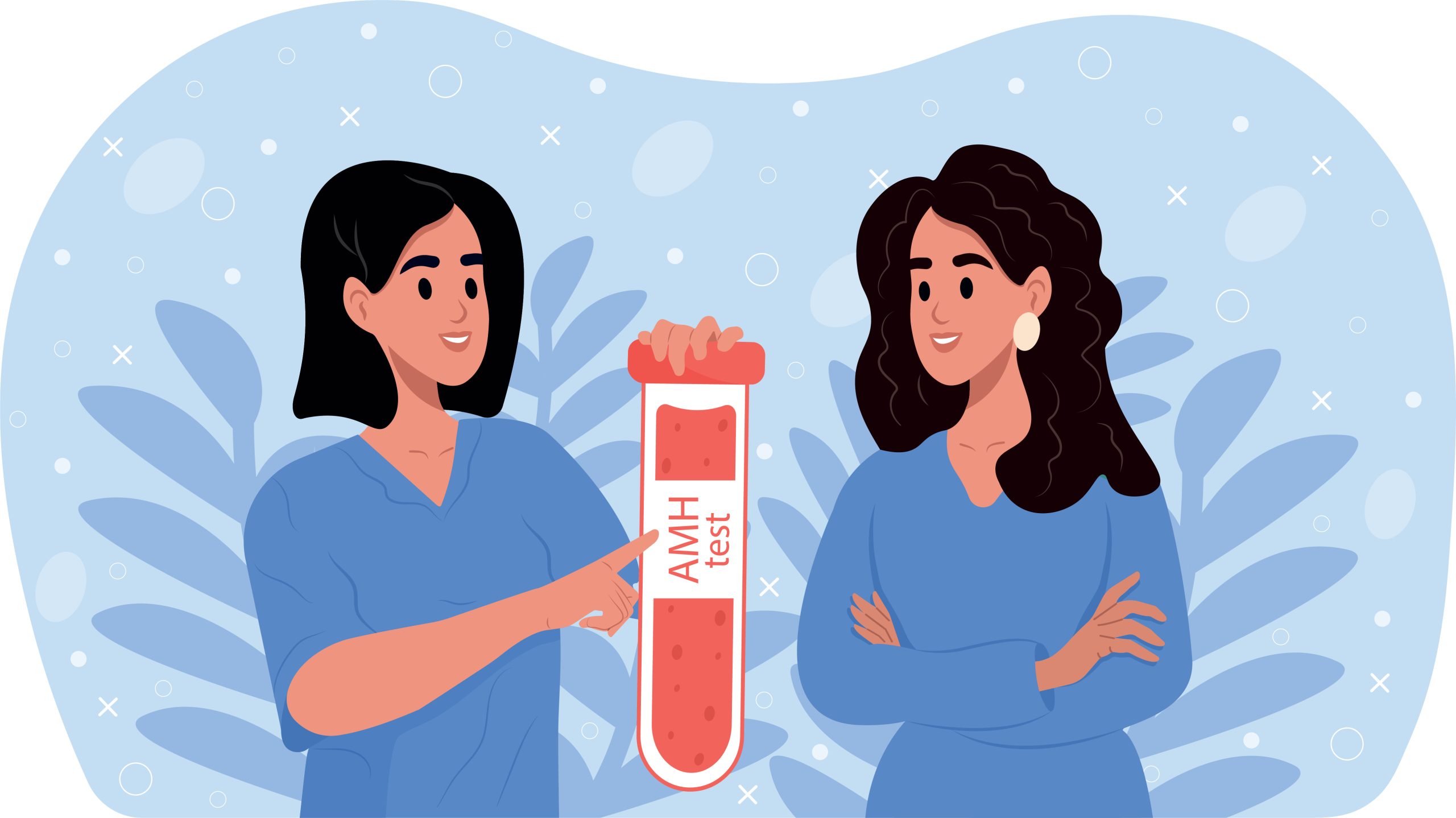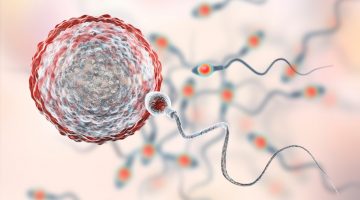AMH Testing and IVF: What You Need to Know

Antimüllerian Hormone (AMH) testing has become a valuable tool in reproductive medicine for understanding ovarian reserve and how these levels impact IVF protocols. AMH gives fertility specialists a measurable sense of how many eggs remain in a woman’s ovaries, and how the ovaries may respond to stimulation during an IVF cycle.
In this article, we’ll detail what a good AMH level is for IVF, what AMH can tell us about your ovarian reserve, and how these two measures can impact IVF success.
Understanding AMH and Ovarian Reserve
The field of fertility studies is constantly evolving. In response to the latest research, AMH testing is now a standard part of the initial fertility evaluation.
This hormone is secreted by the small follicles in the ovaries and serves as an indicator of your ovarian reserve. Ovarian reserve is the approximate number of eggs remaining.
AMH levels remain relatively stable throughout a woman’s menstrual cycle, making it possible to test at any time. A simple blood test provides an AMH result, expressed in nanograms per milliliter (ng/mL), offering important clues about fertility potential.
Researchers have found several key relationships between AMH and fertility :
When AMH levels decrease, ovarian reserve and fertility tend to decline.
Factors such as age, obesity, prior chemotherapy or radiation, and surgical removal of an ovary can lower AMH.
Polycystic Ovary Syndrome (PCOS) typically raises AMH levels.
Birth control pills, pregnancy, and cycle day do not significantly affect AMH results.
AMH Levels and What They Mean
After your AMH blood test, you’ll receive a numerical AMH result. Here’s how these numbers are typically interpreted :
Less than 0.2–0.5 ng/mL: Often associated with a low ovarian reserve and a higher chance of a canceled IVF cycle or a smaller number of eggs retrieved.
1.0–3.0 ng/mL: Considered a normal or healthy range for most women of reproductive age.
Greater than 2.5 ng/mL: Usually linked with a better response to ovarian stimulation and higher egg yield.
Above 3.5–4.0 ng/mL: May indicate PCOS or a higher risk of ovarian hyperstimulation (OHSS).
What Is a Good AMH Level for IVF?
A “good” AMH level for IVF depends on age, overall fertility health, and how the ovaries respond to medication.
In general, AMH levels between 1.0 and 3.5 ng/mL are considered optimal for IVF because they suggest a balanced ovarian response; enough eggs to potentially retrieve and fertilize, but not so high that there’s a risk of overstimulation.
While lower AMH levels can make IVF more challenging, they don’t automatically rule out success. Many women with AMH below 1.0 ng/mL still conceive with personalized protocols and expert care.
AMH Level for IVF Success
AMH is one of several factors predicting IVF success. Women with AMH in the normal-to-high range tend to produce more eggs, which increases the number of embryos available for transfer or freezing. However, success is not determined by AMH alone, egg quality, age, uterine health, and sperm factors also play major roles.
Research shows that women with AMH above 1.0 ng/mL generally have higher chances of pregnancy per IVF cycle, but pregnancies are still possible at much lower levels when the right protocol and lab conditions are in place.
What Is the Lowest AMH Level for IVF?
There is no strict cutoff below which IVF becomes impossible. Many clinics, including CNY Fertility, have achieved pregnancies in patients with AMH as low as 0.1 ng/mL or even “undetectable” levels.
Success rates decline as AMH drops, but modern IVF techniques—like mini-IVF or use of donor eggs—offer viable options.
Your doctor will consider not only your AMH but also your antral follicle count (AFC), FSH levels, and age before recommending a treatment plan.
IVF Protocol for Low AMH
For those with low AMH, fertility specialists often customize the stimulation plan to optimize egg quality rather than quantity. Common approaches include:
High-dose or tailored gonadotropin protocols to encourage maximum follicle response.
Mini-IVF or gentle stimulation cycles for women with extremely low AMH to improve egg quality and reduce medication side effects.
Use of DHEA or CoQ10 supplements to support egg health in the months leading up to IVF.
These individualized protocols can make a significant difference for women with diminished ovarian reserve.
AMH Testing and IVF: The Bottom Line
AMH is a valuable piece of the fertility puzzle, but it doesn’t tell the whole story. A lower AMH level does not mean pregnancy is impossible, nor does a high AMH guarantee success. Instead, these numbers help your fertility team choose the right IVF protocol and set realistic expectations.
If you’re interested in testing your AMH level or learning what it means for your personal IVF journey, our team would be happy to guide you.




